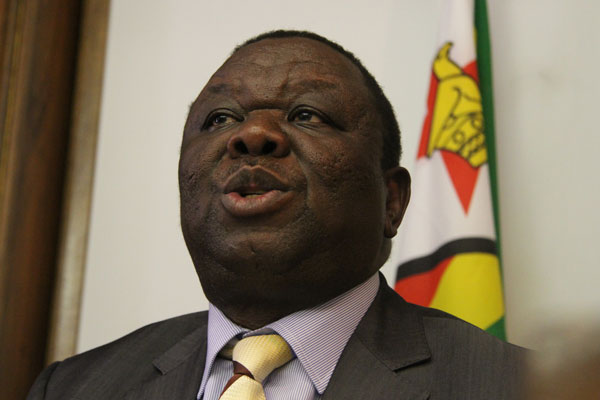
Former prime minister Morgan Tsvangirai, who died of colon cancer last Wednesday, has been hailed by Zimbabweans and the international community as a selfless hero.
Tsvangirai’s death united Zimbabweans in a manner that reminded some of the demise of revered nationalist Joshua Nkomo in 1999.
Even some of the late MDC-T leader’s one-time tormentors during Robert Mugabe’s era could not hide their grief, showering him with praises for championing democracy and good governance at a time the country was in the clutches of a dictatorship.
Those who denied Tsvangirai the chance to lead this great country in 2008 by helping an unpopular Mugabe to cling on to power by all foul means possible described the veteran politician as a “son of the soil” after the announcement of his death.
World leaders have also been sending their condolences and it is clear from their eulogies that the former trade unionist was also highly regarded outside Zimbabwe’s borders for the role he played in dismantling what was once one of Africa’s most brutal dictatorships.
It was on this backdrop that most Zimbabweans expected that Tsvangirai would be declared a national hero.
After all, President Emmerson Mnangagwa’s government has been telling anyone who cares to listen that his administration would have a clean break from the past. During Mugabe’s era, the national hero status was personalised to an extent that it had lost its significance.
A number of Zimbabwe’s gallant sons and daughters were denied a chance to be buried at the national shrine just because they dared challenge Mugabe’s authoritarian tendencies.
- Chamisa under fire over US$120K donation
- Mavhunga puts DeMbare into Chibuku quarterfinals
- Pension funds bet on Cabora Bassa oilfields
- Councils defy govt fire tender directive
Keep Reading
It was everyone’s expectation that Mnangagwa would seize the opportunity created by Tsvangirai’s sad demise to show that the conferment of the national hero status would no longer be a partisan venture where only Zanu PF loyalists are recognised. However, to the disappointment of many, the president announced that Tsvangirai could only be given a state-assisted funeral.
Mugabe used to tell his opponents to build their own shrines if they wanted to be accorded hero status, but that argument was fatally flawed because the process is not just about burials.
When a person is declared a national hero, taxpayers’ money is used to bankroll the funeral and his dependants’ welfare becomes the responsibility of the state. Zimbabweans must have a say on who is declared a hero and the process cannot be a preserve of the ruling party alone.
Meanwhile, since Wednesday Zimbabweans have been emphatic in telling Mnangagwa and his government that they know who their heroes are.
Tsvangirai is an undoubted hero whose commitment to democracy and human rights will inspire many generations to come. Today we add our voice in saluting this great son of the soil and telling the government that it is not too late to do the right thing.











